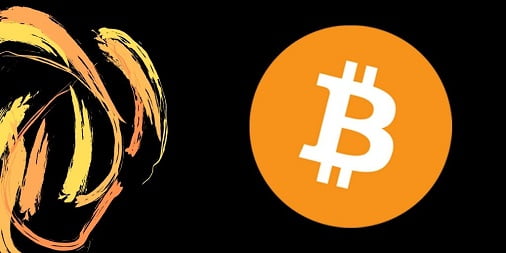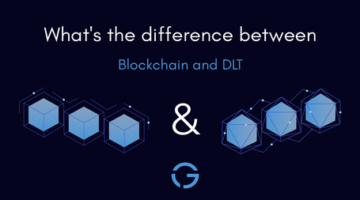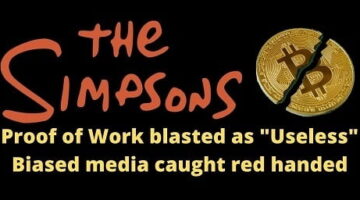GBTC bagholders are nearing an interesting point.

Let’s face it, the fact is that the publicly-traded Bitcoin Investment Trust (OTCBB: GBTC) was devised as a way to create liquidity for shareholders of the privately-traded (through SecondMarket only) Bitcoin Investment Trust (BIT), and not as an investment suitable for those who purchase from exiting BIT shareholders.
As Background: Due to a snafu with the SEC, while the fund could collect money from subscribers, buy Bitcoin, and issue shares, it is prohibited from accepting instructions to sell those same shares, then selling the underlying Bitcoin, and then transferring the resulting cash to the exiting shareholders. This is what caused Barry Silbert and company to go seeking out alternative paths to providing shareholders with liquidity, which resulted in the birth of publicly-traded GBTC shares.
Specifically, the Bitcoin Investment Trusts 2014 Annual Report states:
The Trust has suspended its redemption program, which could have a material adverse effect on an investment in the Shares.
On April 1, 2014, the Trust launched a program pursuant to which Shareholders could request redemption subject to certain limitations. On September 23, 2014, the Distributor received a letter from the staff of the SEC’s Office of Compliance Inspections and Examinations summarizing the staff’s findings from an onsite review of the Distributor’s broker-dealer activities conducted in June 2014. In its exit report, the staff stated that it had concluded that the Trust’s redemption program, in which Shareholders were permitted to request the redemption of their Shares through the Authorized Participant, appears to violate Regulation M under the Securities Exchange Act because such redemptions of Shares take place at the same time the Trust is in the process of creating Shares. The Distributor and the Trust are in discussions with the staff of the SEC in order to resolve the staff’s concerns, although the Distributor and the Trust cannot at this time predict whether the Trust will be permitted to reinstate the Share redemption program for the benefit of Shareholders or the impact such a resolution may have on their respective activities.
Until such time as the Trust is able to reinitiate the Share redemption program for the benefit of Shareholders, if ever, investors will be unable to (or could be significantly impeded in attempting to) sell or otherwise liquidate their investment in the Shares, which could have a material adverse impact on an investment in the Shares. (emphasis added).
You have to hand it to the folks at Grayscale Investments. They and BIT’s shareholders are served a HUGE pile of lemons (news that shareholders can’t sell their shares in the fund, which should have decimated the value of the fund in the secondary market) and created the sweetest lemonade instead (through the creation of GBTC, BIT shareholders can now exit – not by redeeming their fund shares, but by selling them to eager buyers, where shares of GBTC have no redeem ability at all).
Instead of forcing BIT shareholders who wanted to exit to take a huge haircut by trying to sell their unredeemable shares to fellow shareholders, thanks to Grayscale’s work in creating GBTC, they have been selling shares their newly converted shares of GBTC at an obscene premium to NAV (Net Asset Value) to overeager Bitcoiners. (I’ve discussed this situation in a previous blog post).
This is why I feel okay referring to buyers of GBTC shares as bag holders – the GBTC was literally created for no other reason than to provide a method for BIT holders to unload their shares, and numerous people, hundreds to thousands of them, stepped into the gap to provide them an exit. Overeager Bitcoiners.
Once GBTC opened for trading, holders were greeted with a pleasant surprise, in that buyer were willing to pay outrageous premiums in order to get ahold of shares of GBTC
Despite lots of chatter and warnings on /r/Bitcoin, many other subscribers to that sub (along with even more people – the point im trying to make is that many redditor Bitcoin enthusiasts went ahead and purchased GBTC shares despite reading clear warnings about the unsustainability of GBTC’s premium, still went ahead and eagerly purchased; often times justifying it by a new concoction of the “greater fool” theory, explaining “yes, I understand what you guys are saying, I’m paying a huge premium to buy Bitcoin’s inside of these publicly traded shares, but that doesn’t mean that no one else will cone along and offer me even more money for them”.
The gap between the trading price of GBTC and the value of a tenth of a Bitcoin has almost created a situation for creating an even more ironic “gotcha” moment for those who invested in GBTC, namely that if the price of Bitcoin increases (which is anybodies guess, really) and GBTC begins trading more in line with its underlying asset value (by seeing the premium disappear, meaning the price would fall), they could very well end up in a situation where the price of Bitcoin goes up and they still manage to lose money by virtue of GBTC’s declining price.
That moment is near. Despite its exiting first few trading days, which saw shares trade hands at anywhere between 37.98 and an astounding 94.86, the last few days have seen steady declines as GBTC begins the path to trading at or close to parity with its underlying assets. With a closing price of $38 (2 cents above its intraday low since trading began) everyone who bought and held shares of GBTC is either at break even point or in the negative already.
I just think the irony will be too much if actual Bitcoin prices go up a couple more dollars – at that point any Bitcoin afficianado who bought Bitcoin on the day GBTC started trading will have made money, while GBTC (bag)holders will have still managed to lose money even though the price of the underlying asset that makes up their investment went up during that period.
I know it’s not propped to laugh at other peoples losses, but it’s really hard not to.
Keep in mind, this sort of situation would almost never, could almost never occur with an investment created from the onset work in its shareholders best interest, namely an ETF, and specifically, the Winklevoss Investment Trust.
As an ETF, the Trust will have “authorized participants” who are capable of creating or redeeming shares whenever those shares trade at a significant premium (or discount) to NAV. Rather than being devised as an exit strategy for investors of another fund, the purpose of COIN is to simply provide exposure to Bitcoin investment portfolios. As such, there will be no motivation, and really, no ability, for shares of COIN to trade at such premiums to NAV as we’ve seen with GBTC. Sure, it could happen, but only if authorized participants don’t act in their best interests by arbitraging COIN share with actual Bitcoin when mispricings occur.
For GBTC holders, the past couple weeks have been a “live and learn” experience. And as much as I hope the best for them, that their losses remain limited, overall, I hope no one else falls into the GBTC trap. If you want Bitcoin exposure in your investment portfolio or IRA, do yourself a favor and wait for COIN.
THE END
(Note: all of the above is my personal opinion. No one compensated me for this writing. And if you take any actions as a result of reading this, the outcome is your responsibility and yours alone, this is not investment advice!)
Relevant news

Microstrategy increases its Bitcoin holdings
Microstrategy increases it's Bitcoin holdings once again MicroStrategy, a software company that has been steadfastly…

What Differentiates the Blockchain from Distributed Ledger Technology?
Blockchain tech was developed to timestamp digital documents so that it’s virtually impossible to backdate…

The Simpsons jokes about “Useless, Energy-Gobbling” Crypto
The official Bitcoin Twitter channel promoted a video clip from the Simpsons which they claim…

The Marketing and Consumer Behavior of Bitcoin and its Users
The rapid boom in bitcoin’s price can be termed as a wonder which has left…

What Would Happen to Bitcoin Miners After the Next Halving?
With more than 85% of bitcoin already mined, users in the crypto space are growing…

Impact of Recent Global Events on Bitcoin Price
There's a lot of mystery surrounding what exactly drives Bitcoin price. That said, historical trends…
